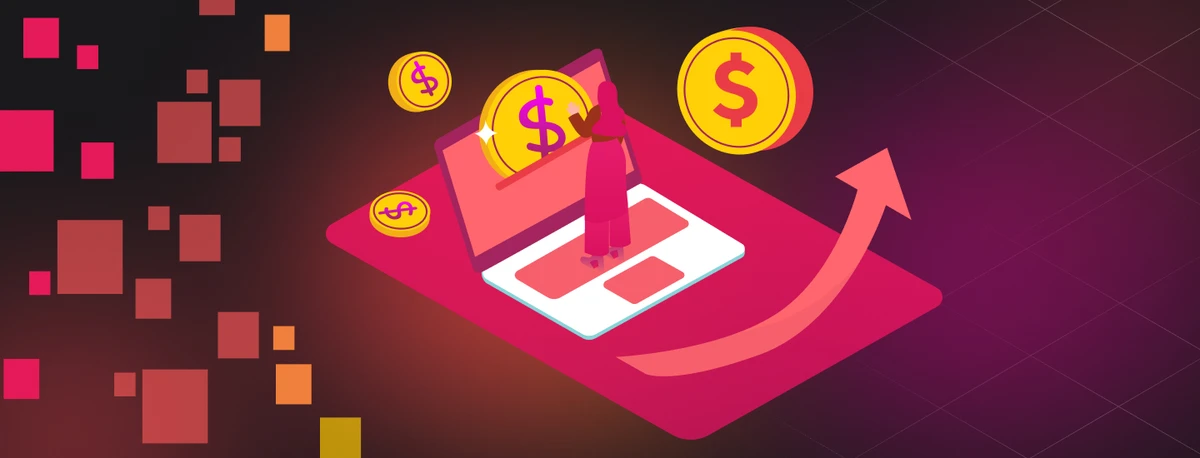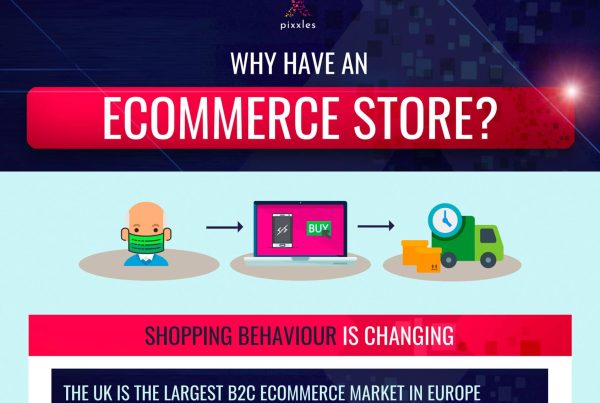Payout Defined – What Are Payouts?
Payouts are, simply put, money that someone is paid. They can be paid in the form of wages, salaries, dividends, refunds, or other disbursements. For instance, a company might distribute salaries to its employees on a set schedule, such as weekly, biweekly, or monthly.
To operate a successful business, it’s helpful to understand payouts. From paying suppliers and employees to handling customer refunds, these transactions form the backbone of your financial operations.
How Do Payouts Work?
All payouts, regardless of their kind, follow the same basic steps—initiation, processing, and final receipt of funds.
Firstly, the initiator must decide to make the payment, a process determined by a set schedule (for wages) or specific events (like refund requests or insurance claims).
Next, the payout is processed, with the exact method varying widely depending on the payment system.
Finally, the recipient receives the funds. How long this takes depends on what payment system is being used.
How payouts work overall is pretty simple, although the details get extremely complex and run beyond the scope of this overview.
Here is a simplified list of the different types of payouts:
- Local payouts – Payouts to gig workers, local service providers, and others within the same country as the entity making the payment.
- Investment payouts – Money a person makes from investments of various kinds (typically paid on a periodic schedule).
- Insurance payouts – A payment that a policyholder receives from an insurance company.
- PTO payouts – Payouts that compensate workers for their unused paid time off.
- Contest payouts – Payments made to winners of a contest or those who have earned from gambling.
- Crypto payouts – Payments made from crypto, e.g., Bitcoin and Ethereum.
Payouts in Ecommerce
Payouts in ecommerce are multifaceted, taking on unique forms of disbursement.
- Cash Payouts – In some remote areas, even today, cash payouts remain the only viable option.
- Payouts to Wallets – Digital wallet payments are projected to surpass credit card payments, with billions of dollars transacted annually. As a result, payouts to digital wallets are becoming increasingly popular.
- Payouts to Debit or Prepaid Cards – Prepaid cards are being used for payouts, helping unbanked individuals access financial services.
- Bank Transfers – In some countries, real-time bank transfers are now standard, with funds appearing in the recipient’s account within seconds. This makes bank transfers a go-to option for payouts.
- Cryptocurrency Payouts – In 2021, El Salvador became the first country to accept Bitcoin as legal tender. This decision not only enables purchases with Bitcoin but also paves the way for businesses to make cryptocurrency payouts.
- Gift Cards or Store Credits – Some businesses offer payouts in the form of gift cards or credits to be used within the store.
- Cheque Payments – Billions of cheques are still written annually, and some of these are used in business-to-business payouts.
- Payouts to Credit Cards – Payouts to credit cards are commonly used to process refunds.
- Third-party Payment Processors – Some businesses use services like PayPal, Stripe, etc., to manage payouts.
- Cross-border Payouts – These types of payouts can be more complex and time-consuming than others due to varying financial laws and exchange rates.
- Charitable Donations – Payouts can be made in the form of donations to a charity chosen by the customer.
The Importance of Payouts for Merchants
Every ecommerce merchant needs a strong payout system, and one of the best starting points is to automate. On this note, if you’re an ecommerce merchant and are still processing payments manually, it may be time to upgrade to an automated process.
Manual handling of payments can lead to potential errors, delays, and ultimately, a negative experience for your customers and vendors. There can also be legal and regulatory consequences for errors.
Beyond the legal risks, the operational challenges of managing payout delays may divert critical resources from other areas of your business. This makes automation a must unless you run a small business.
Problems Merchants Sometimes Face When Making Payouts
When it comes to managing payouts, merchants may encounter a number of problems. Here are the most common ones.
Delays and Errors
As mentioned, delays can create problems with customer satisfaction and compliance. This holds true even if the delays are due to technical errors or third-party issues.
Additionally, errors in calculation or processing can lead to overpayments or underpayments, requiring time-consuming corrections.
Security Issues
Security issues in the payout system are a critical concern for merchants, especially in ecommerce. This is because vulnerabilities can expose sensitive financial data like bank account or credit card details.
Adding security measures like multi-factor authentication can help protect you, as can investing in enhancing your payout system’s security in other more advanced ways.
Currency Conversion Challenges
For international payouts, fluctuating exchange rates and fees can make them very complex and costly.
Limited Payment Options
If you don’t offer a variety of payment methods, this can cause inconvenience for your recipients and may affect your business relationships.
High Transaction Costs
Fees associated with certain payout methods can erode margins, especially in businesses with high transaction volumes.
Inefficient Reporting and Tracking
Without effective tracking and reporting, managing payouts becomes more labour-intensive and prone to errors.
Outdated System
Cumbersome or outdated payout systems can make the payout process difficult, leading to lowered productivity.
Scalability Issues
A system that can’t scale with your business will lead to bottlenecks, requiring an overhaul or significant modifications.
Cross-Border Regulatory Challenges
International payouts often pose unique regulatory challenges.
No Payouts During Non-Banking Hours
The inability to process payments during non-banking hours can create delays and impact the timing of transactions.
Problems with Bulk Payments
Challenges in handling bulk payments can arise due to software limitations and the complexities of managing large numbers of simultaneous transactions.
To solve all these problems and more, your business needs the right payment solution!
» MORE: Streamline transactions with easy online payment solutions
Specific Ways The Right Payment Solution Helps Your Business
A good payout solution for global ecommerce should be flexible, handling diverse needs like instant card payouts, local bank transfers, quick disbursement, and seamless market entry.
But this is just the tip of the iceberg. A comprehensive payout solution equips merchants with a wide range of capabilities, which include:
- Creating customized payment experiences
- Refunding customers
- Employee compensation
- Paying sub-merchants
- Paying suppliers
- Sending real-time payouts
- Charity payouts
- Commission payments
- Paying freelancers and contractors
- Cross-border payments
- Compliance management for different countries.
- Tax-related payments
- Paying dividends to shareholders
- Gift cards and incentives
What Types of Businesses Need Payouts?
Nearly all businesses require some form of payout system to manage their financial transactions, but specific types of businesses have unique needs.
Traditional Retail and Service Industries
Businesses in traditional retail and service industries need modern payout solutions that offer flexible payment methods and schedules.
Manufacturing Businesses
These businesses require robust payout solutions to handle complex supply chain payments, which often involve international suppliers.
Gig Economy
Businesses in the gig economy need ways to disburse payments to suppliers instantly and across borders, which requires flexible, real-time payout solutions.
Healthcare Providers
Healthcare payout systems face heavy demands, given the industry’s extensive network of suppliers and insurance companies.
Crypto Exchanges
Crypto exchanges operate within a dynamic, fast-paced environment where the pace of payouts is absolutely crucial. With crypto values fluctuating constantly, these businesses need to offer 24/7 real-time payouts to ensure users get the most accurate value at the time of transaction.
Marketplaces
Both local and international marketplaces need payout systems that can handle transactions in different currencies.
Non-Profit Organizations
Charities and non-profit organizations face unique financial challenges that require specialized payout systems. Beyond merely managing donations and grants, these systems must handle varied funding sources, juggle complex regulatory requirements, and navigate international transactions.
Multi-Level Marketing (MLM)
Multi-level marketing (MLM) businesses work with wide networks of independent distributors or representatives, making the payout process complex and demanding. Speed and efficiency are crucial factors here.
MLM businesses typically incentivize participants with fast and regular payouts.
Subscription-Based Services
Subscription-based services deal with a constant cycle of recurring payments and refunds. This calls for a seamless and efficient payout system.
One challenge with subscription services is the need to handle prorated payouts. For example, if a customer cancels their subscription midway through the billing cycle, the business might need to issue a prorated refund for the unused portion of the service.
Education and Training Institutions
Education and training institutions are faced with the following challenges: Managing tuition refunds, disbursing financial aid, paying vendors and part-time staff, and sometimes, handling income from sideline businesses like university bookstores.
To tackle these challenges, some schools have started using digital wallets to disburse financial aid quickly and conveniently.
Some Interesting Facts About Different Types of Payouts
Local Payouts
Local payouts can often be processed more quickly than international or cross-border payouts. This is thanks to the use of local banking channels and adherence to domestic regulations.
Investment Payouts
Investment payouts come in the form of dividends, interest, capital gains, royalties, profits-sharing, return of capital, and annuity payments.
Equity Payouts
Equity payouts are based on the equity stake that an investor holds in a company. They are often used to share success with shareholders and attract more investment.
Insurance Payouts
Insurance payouts are crucial but often contentious. They cover various scenarios, such as car accidents, but fake claims are common and increase premiums. Some companies offer expedited processing, which reflects the complexity of the insurance landscape.
PTO Payouts
In some jurisdictions, employers are required by law to pay out unused PTO when an employee leaves the company, while in others, it may be left to company policy or individual agreements.
Contest Payouts
Contest payouts are subject to complex tax laws, and some winners might find themselves in a situation where the tax liability exceeds the value of the prize.
Crypto Payouts
A significant advantage of crypto payouts is the ability to conduct cross-border transactions almost instantaneously without the need for intermediary banks or currency conversions.








